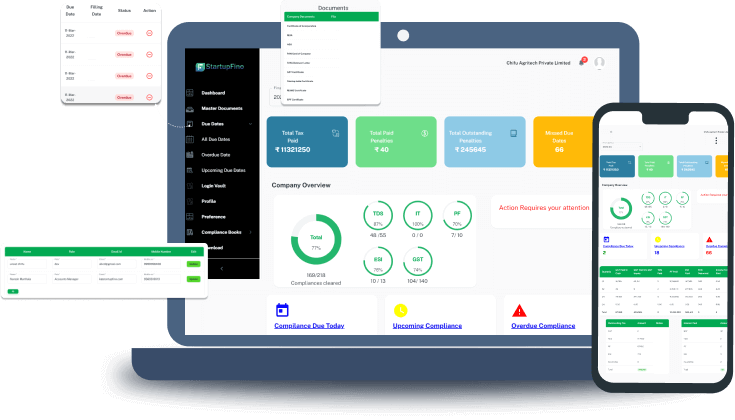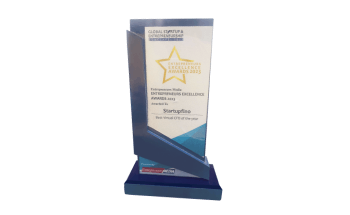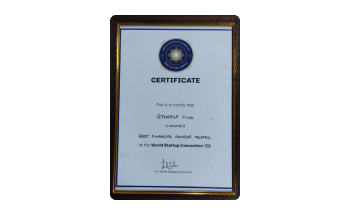What are the Methods Used for Company Valuation of Startups in Rajasthan?
Businesses and Professional Valuation consultants in Rajasthan like StartupFino employ a range of comprehensive and accurate methods to determine the value of a startup in Rajasthan. These valuation methods take into account various factors that influence the overall valuation of a startup company. The following are the key methods:
1. Self-Evaluation Method:
To accurately evaluate a startup in Rajasthan, commonly emphasis is laid on the importance of self-evaluation. This entails tracking and assessing all the company's assets. Within the Key Progress Indicators (KPIs), indicators such as profit, market share and customer satisfaction hold paramount importance as they provide insights into the firm's performance.
2. Cost-To-Duplicate Method:
On the other hand, the Cost-To-Duplicate Method takes into account all the expenses involved in recreating the startup from the ground up. This encompasses costs related to products, assets and infrastructure. By assessing the genuine cost of establishing a comparable startup in Rajasthan, valuable insights into the overall value of the startup are obtained by investors.
3. Market Multiple Method:
The Market Multiple Method involves assessing the profitability of a product within the market compared to similar companies in Rajasthan. For example, if a startup plans to introduce a product to the market, investors analyse the existing market value of comparable products to estimate potential profit rates before making an investment. This method is significant for a variety of reasons but foremost because it provides investors with a very clear understanding of what could be the potential profitability in future for the startup.
4. Discounted Cash Flow Method:
The DCF Method is a complicated approach that calculates the present value of the startup's estimated future cash flows. It entails forecasting profits, losses, asset prices and the company's overall worth. Additionally, the method incorporates a discounted rate of return to account for the risk of the startup's failure to thrive. This method helps determine the intrinsic value of the startup.
Preparing the Valuation using the Discounted Cash Flow Method:
Step 1: Evaluating the Firm's Current Position:
- Determine the firm's current revenue for the year.
- Assess the company's cash burn rate.
- Analyse industry projections.
Step 2: Estimating Revenue Growth:
- Identify revenue growth through various approaches:
- Consider the firm's historical revenue growth rate.
- Evaluate the growth rate of the overall market the firm operates in.
- Assess barriers to entry and competitive advantages possessed by the firm.
Step 3: Estimating a Sustainable Operating Margin in Stable Growth:
- Analyse the firm's underlying business and its true competitors.
- Break down the firm's current income statement to determine its actual operating margin.
Step 4: Estimating Reinvestment for Growth:
- Recognise that young firms need to reinvest to foster growth.
- Calculate expected growth using the formula: Expected growth = Reinvestment rate * Return on capital.
Step 5: Estimating Risk Parameters and Discount Rates:
- Traditionally, risk is perceived as a negative concept involving danger or hazard.
- However, risk has both negative (danger) and positive (opportunity) aspects.
- Risk is often measured using the term "beta."
5. Valuation By Stage Method:
By assessing the popularity and success of similar products in the market in Rajasthan, investors can determine the value of a startup in Rajasthan. This method provides a direct and efficient approach to estimating the startup's valuation in Rajasthan by considering the performance and valuation of comparable companies and their products.
6. Venture Capital Method:
Primarily applicable to startups seeking funding in Rajasthan, the Venture Capital Method calculates the expected return on investment for investors. This method entails calculating the startup's pre-money valuation while considering the venture's predicted growth and possible profitability. It aids entrepreneurs seeking funding in analysing investment options.
In this, the first stage is to assess your startup's exit multiple and establish its terminal value. An exit multiple is one of the strategies used in the discounted cash flow calculation to compute the terminal value.
Then, compute the predicted ROI. To calculate your post-money valuation, divide the exit value by the ROI. Subtract the investment amount you're seeking for from this figure to establish your pre-money worth. You must invest the pre-money valuation today in order to obtain the terminal value.
7. Book Value Method:
The Book Value Method evaluates the worth of a startup by considering the total value of the company's assets. Unlike previous methodologies, this strategy does not include analysing profits and instead focuses entirely on the startup's actual assets.
8. Risk Factor Summation Method:
The Risk Factor Summation Method combines a thorough examination of main risk factors that determine a startup's profitability. These factors include, among others, management risk, sales and marketing risk, market popularity risk, milestone accomplishments, legal risk and capital and funding risk. By assessing these factors collectively, investors can gain insights into the potential profitability of the startup in Rajasthan.
9. Relative Valuation Method:
Relative valuation determines the value of a company by comparing it to similar companies or companies with similar features in Rajasthan or outside.
The first step is to discover peers who share comparable characteristics.
Next, look for key multiples such as EV/EBITA, P/E ratio, EV/Revenue and EV/EBIT. To get the value, multiply the numbers by the mean or median of the multiples. It benefits investors in the following ways:
- Screen and shortlist equities to create a list of potential new investments.
- Determine whether a current investment is overpriced in comparison to its peers and should be sold.
There are two approaches to relative valuation:
The Comparable Company Method: The current share prices of comparable companies on the market are utilised to evaluate the value of a startup.
Precedent Transaction Method: The price paid for comparable companies in the past is used to evaluate a company's value using the precedent transaction method.
10. Berkus Method:
The Berkus Method takes into account multiple aspects to determine the startup's value in Rajasthan. Factors such as the quality of management, product/service excellence, market acceptance, strategic partnerships, advertising strategies and projected sales contribute to the overall valuation. Each factor is associated with a specific monetary value, enabling a comprehensive evaluation of the startup's worth in Rajasthan.
By utilising these accurate and detailed valuation methods, StartupFino provides a comprehensive analysis of startup companies in Rajasthan, enabling investors to make informed decisions about potential investments.
Reasons to Consult a Professional Valuation Consultant like StartupFino
There are certain compelling reasons why startups should engage the services of an external valuer for their valuation needs. These include:
Exit Strategy Planning:
- Set a baseline for the company before selling it.
- Develop a strategy to improve profitability and increase value as an exit strategy.
Buy/Sell Agreements:
- Establish a mutually agreed value for partnership firms or LLPs.
- Prevent future disputes among partners.
Shareholder or Partnership Disputes:
- Independent business valuation helps in fair settlement of ownership interest when an owner decides to leave a partnership.
Mergers and Acquisitions:
- Determine if the price demanded for buying or merging with another company is fair.
Determining the Annual Per Share Value of an Employee Stock Ownership Plan (ESOP):
- Value shares of ESOP annually to meet specific requirements and establish a fair stock price.
Funding:
- Objective valuation assists in raising capital from banks, venture capitalists and other investors.
Litigation Support:
- Objective appraisal aids in pretrial settlement or strengthens a situation where business valuation is the main issue in a trial or arbitration.
Gift Tax Planning:
- Accurate and documented valuation helps avoid doubts and complications in gift tax planning.
Estate Planning:
- Determine the value of the business to adequately plan for future estate tax liability and avoid burdening heirs with hefty taxes.































































